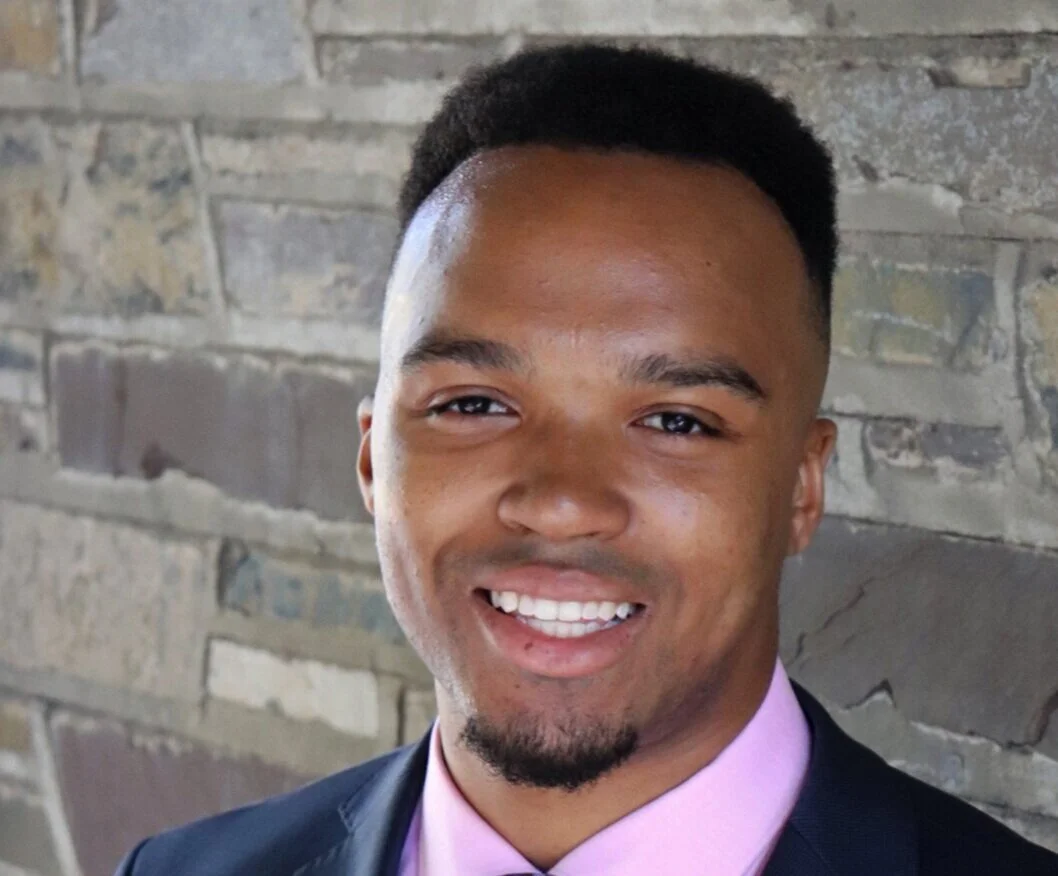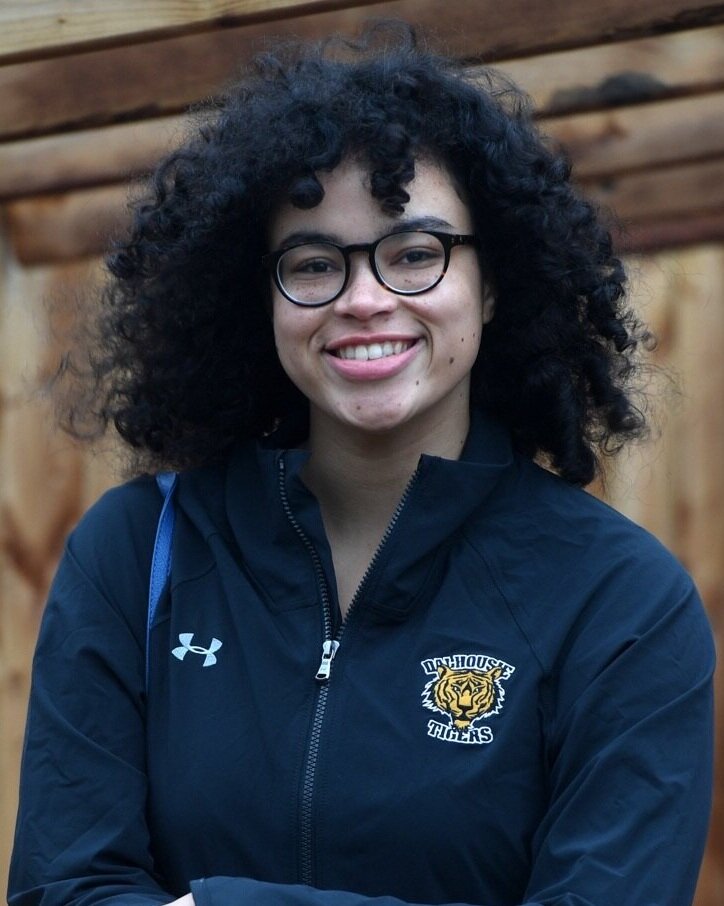University of Saskatchewan's first Black Biomedical Engineering PhD graduate Adeola Olubamiji receives many accolades
December 4, 2020
With so many positive things happening in her life in a short period, Dr. Adeola Olubamiji feels both lucky and blessed.
Five years after coming to Canada to complete her doctoral studies, she was the first Black student to obtain a PhD in Biomedical Engineering from the University of Saskatchewan in 2017.
To mark International Women’s Day in 2019, Olubamiji was among 10 Canadian women honoured by L’Oreal Paris Canada through its Women of Worth program with a charitable $11,000 grant for inspiring and fostering change through STEMHub Foundation that she launched to expand the ambitions and accessibility of females, visible minorities and underserved youth to pursue education and careers in Science, Technology, Engineering and Math (STEM) studies.
Three months later, she was a member of the Influential Women in Manufacturing class of 27 women recognized for their change leadership in manufacturing and their risk embracing work that serves to move the needle in asset management and reliability, digital transformation, workforce development and other elements critical to ensuring the manufacturing industry to meet challenges.
Last September, Olubamiji – who once hawked pepper on the streets of Ibadan which is in south western Nigeria – was the recipient of a Manufacturing Institute STEP Ahead Award that honours women who have demonstrated excellence and leadership in their careers and represent every level of the manufacturing industry from the factory to the C-suite.
She also made the Top 25 Canadian Immigrant and the Women Executive Network Top 100 Most Powerful Women in Canada distinguished lists.
Dr. Adeola Olubamiji at graduation with University of Saskatchewan President Dr. Peter Stoicheff (Photo contributed)
On the way to Saskatoon in May 2012, Olubamiji – who completed her Master’s in Physics at Tampere University of Technology in Finland -- was in transit in Toronto for about four hours.
“When I got off the plane at Pearson Airport, I remember saying aloud that ‘Canada is a land flowing with milk and honey’,” she recalled. “Those words have indeed come true.”
The University of Saskatchewan grounds is home to the Canadian Light Source which is this country’s national synchrotron light source facility.
That appealed to Olubamiji when she was looking for a university to do her PhD.
A synchrotron is a source of brilliant light that scientists use to gather information about the structural and chemical properties of materials at the molecular level. The analytical tools include advanced X-ray imaging, non-destructive testing and in-situ and bulk & surface investigations.
“Every Canadian university has its uniqueness,” she said. “If you are trying to do any work with synchrotron X-rays, the best place to be at is the University of Saskatchewan.”
Olubamiji’s research revolved around exploring 3D printing for biomedical applications use for cartilage replacement.
As the only Black candidate in the PhD program, she became aware of the history-making achievement a few months before graduating.
“I was taken aback when I learnt I was the first one because I feel like if we have to solve problems related to Black health, we need Black people working in those areas,” pointed out Olubamiji who worked part-time as a make-up artist, hair braider, weave fixer and teaching assistant to make extra money. “How could we tackle health problems that are probably peculiar to us if we don’t have Blacks completing PhDs?” For the most part, I think Blacks try to play safe by doing traditional Engineering like Mechanical and Electrical.”
Graduate school is a tough slog and there were times when she considered quitting the PhD program.
Often hearing from people unfamiliar with Biomedical Engineering that she mightn’t get a job or that those with industry experience or connections are more likely to get hired didn’t make it easy for Olubamiji during her five years at the University of Saskatchewan.
“Canada is a very specialist country and what I discovered is that sometimes when you don’t have the skills, even if you have a doctorate, you will get a job,” she noted. “I realized that I would thrive in my career if I got both the degree and the skill set.”
Dr. Adeola Olubamiji with Canadian Member of Parliament Ahmed Hussen (Photo contributed)
There was another reason for Olubamiji to complete graduate school.
In her second year, older sister Omoleye Olubamiji succumbed to cervical cancer in December 2014.
“She was a bright person and much smarter than me,” she said. “She was in Biochemistry, so when I was crossing over from Physics to Biomedical Engineering, my sister was the person I talked to about Biology, Anatomy and Physiology because she had done that. If I felt down and out, she was the one that lifted me. She was my biggest cheerleader and the one that brought our family together. Just watching her disappear gradually because of cancer was another reason for me to study Biomedical Engineering because I feel that someone needs to find answers to the different diseases that affect us, particularly Blacks. The stats out there suggest more Blacks die of cervical cancer than any other race.”
Besides her sister, Olubamiji dedicated the PhD to her mother who married at age 18.
“Her father withdrew her from school, saying education is for males,” she recounted. “After giving me a daily bath, she told me to seize the opportunity. Her favourite words to me was, ‘Go get them’ so I approached school daily as if I was on a battleground. My mom worked so hard and I feel like the reason she isn’t wealthy is because she didn’t get an education. All my life, I am trying to do what she couldn’t.”
Just before convocation, Olubamiji relocated to Hamilton to join Burloak Technologies as a Lead Metallurgist and Material Engineer. She spent two years with the Dundas-based company that specializes in additive manufacturing.
Dr. Adeola Olubamiji at work at Burloak Technologies (Photo contributed)
With the groundbreaking story going viral, her social media audience increased from about 350 to 5,000 in a 24-hour span.
A common thread through most of the responses was, ‘Are there more of you and can you come and talk at our community centre’?
“I quickly realized our community needs more people like me coming out and helping young people understand what is possible,” she said. “I bought a 3D printer and went to some community centres to meet with young people. Other professionals joined me and we went to centres, churches and wherever we could find youths. We found that they wanted to be exposed to science to learn something new rather than just basketball and other sports.”
Sensing the need to fill a vacuum, Olubamiji started the 40-member volunteer-driven STEMHub Foundation which provides mentorship programs for university students, assisting them navigate systems and grasp which courses they should consider to increase their competitiveness in the job market.
“It has been fulfilling to see the impact the program is having in communities,” she said. “Even now that we are doing everything virtually, parents are requesting programs for their children who are at home.”
Growing up in Nigeria, a photo of her uncle on the living room wall was Olubamiji inspiration to pursue higher education.
Abiodun Francis Oluwole graduated with a PhD in Atomic & Nuclear Physics from the University of California, Berkeley in 1969 and built an optimal pumping laboratory which was the first modern Physics research lab in Nigeria.
“My dad put that photo up and he often talked about opportunities associated with education and how you can do so many things,” said Olubamiji. “Dad said his brother used Physics to navigate the world. I wanted to study Physics just like my uncle and I knew I was supposed to get a scholarship my parents couldn’t afford.”
She pursued a Bachelor of Science in Physics at Olabisi Onobanjo University in Nigeria.
“After I enrolled, I started asking questions,” recalled Olubamiji. “Do I want to make bombs? and I will only pursue Nuclear Physics if it’s the next big thing for my generation. The questions surrounded the new innovations out there and I goggled to see what the future is like for Physics.”
Just before graduation, she discovered Biomedical Engineering.
“I found that’s an area you can branch into from Physics,” said Olubamiji. “You could major in Medical Physics and Instrumentation which means you can be helping to create new and advanced technologies for medical imaging and you can do some work on creating medical equipment and instruments. I was very fascinated by that because there are a whole lot of opportunities with technology. I thought if that is where the future of Physics lies, then that’s what I want to do because I am trying to be a trailblazer like my uncle.”
Dr. Adeola Olubamiji (r) and American actress Aja King (Photo contributed)
She moved to the United States in October 2018 to take up the role of Advanced Manufacturing Technical Adviser with Cummins that’s a Fortune 500 firm that designs and manufactures engines and power generation products.
The company is based in Indiana.
“I love a good challenge and Cummins was just getting into exploring additive manufacturing,” Olubamiji said of the move. “They needed someone to hit the ground running, set up the processes and show the company what this technology is capable of doing. I started with helping the company understand the value proposition of 3D printing and from there, we got a good amount of investment. I am now collaborating with other stakeholders to build a new business that will rely on 3D printing.”
She played a pivotal role in improving Cummins’ laser-printed 316L stainless steel to a quality level and developed an AM technology development roadmap.
Before COVID-19 restrictions, Olubamiji – who married last year -- returned to Canada monthly.
“I still maintain a residence in Canada and there’s the STEMHub Foundation to take care of,” she said.
Returning to Canada to live and work isn’t of out of the question.
“If an opportunity arises, I will be happy to come home for sure,” the youngest of five siblings, who is a Canadian citizen, said. “I am Nigerian first before I am anything else. The sad thing for me is that I am at the forefront of innovation and the country is still many years back. Maybe, if they say they are ready for it, and that’s a long shot, I will be happy to give it a chance. Canada, however, will always be my home because it is what it is. I am proud to be Canadian.”










